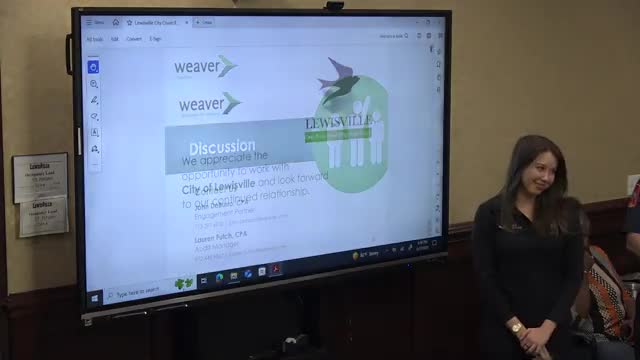Lewisville emergency staff review boil-water notification problems; city plans system changes and IPAWS use
Get AI-powered insights, summaries, and transcripts
Subscribe
Summary
After a recent water-main break and boil-water notice, emergency management staff told the council they reviewed Everbridge results, found primarily account- and delivery-method issues, and plan to adopt shorter SMS messaging, avoid geofencing for some events and pursue IPAWS for wide-area wireless alerts.
City emergency management staff summarized lessons learned from a recent water-main break and subsequent boil-water notice at the March 17 Lewisville City Council workshop and outlined changes to the city's mass-notification approach.
Cindy Casey, emergency management specialist, said the city's vendor system (Everbridge) attempted more than 300,000 notification deliveries during the event and reported "only one true system error". Casey attributed gaps in delivery chiefly to subscribers' account settings, outdated contact information and design choices during the early notification that prevented some landline-only subscribers from receiving the alert.
Casey described multiple causes for missed messages: residents who had moved without updating their accounts were excluded when staff used a pressure-zone geofence; some subscribers had only landline numbers and the first alert was sent only via text and email to avoid waking residents; SMS messages had been long enough to display as links on some carriers; and some users had previously marked similar messages as spam or subscribed only to National Weather Service alerts (which are relayed differently).
Planned changes: city staff said they will (1) use multiple contact methods (voice, text, email) for future critical notifications instead of text/email only; (2) shorten SMS copy to avoid carrier fragmentation and link-handling; (3) stop relying on geofencing for certain water/utility advisories because geo-targeting excluded some affected residents; and (4) pursue activation of IPAWS (Integrated Public Alert and Warning System) for critical incidents so wireless emergency alerts (the same system used for AMBER and tornado warnings) deliver messages to all mobile devices connected to affected cell towers without opt-in.
Legal and privacy considerations: Casey told the council that porting utility billing data into Everbridge for automatic notifications raises legal questions about permitted use of billing information; staff said many municipalities surveyed rely on opt-in subscription rather than full imports for legal reasons. IPAWS was presented as a way to reach wireless devices without moving billing data into the vendor system.
Public outreach: staff described outreach steps already under way, including water-bill mailers, education booths at community events, newsletter items, and plans to preserve existing subscriber groups when categories are renamed (for example, changing "community alerts" to "Lewisville emergency alerts" and renaming weather alerts to explicitly reference the National Weather Service).
Ending: Council members asked clarifying questions about retention of subscriber groups and legal limits on using utility-billing data; staff offered to take the legal question offline and pursue an MOU to use IPAWS. No formal council action was taken at the presentation.
